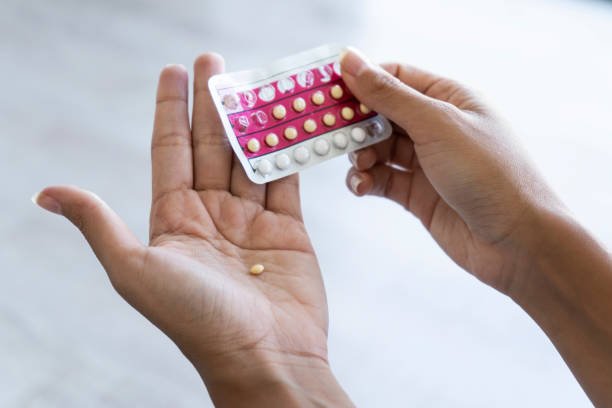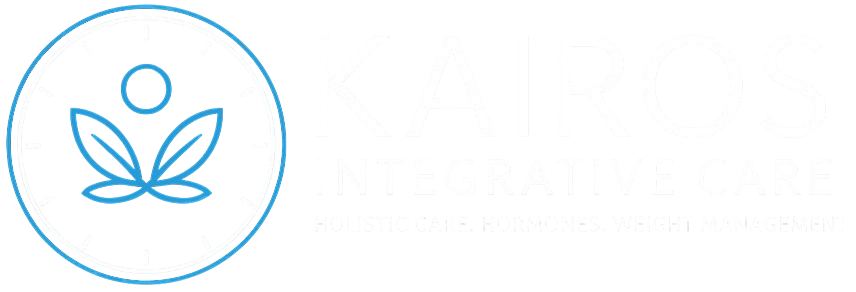Burning, urgency, discomfort, and just when you think it’s gone, it comes right back. For many women, urinary tract infections aren’t a one-time issue. They become a pattern that disrupts daily life, intimacy, sleep, and overall confidence.
At Kairos Integrative Care, we often see women who’ve done “everything right”, taken antibiotics, followed hygiene tips, even adjusted their diet, but still face recurring UTIs without clear answers.
When infections keep coming back, it’s not just about bacteria. It’s often a sign of deeper imbalances in your microbiome, hormones, or immune system that need to be addressed holistically.
Why Do UTIs Keep Coming Back?
A urinary tract infection (UTI) occurs when bacteria enter the urethra and multiply in the bladder. Recurring UTIs in women are almost never random. If they keep happening, it’s your body’s way of saying something’s out of balance. While most people experience one occasionally, recurrent UTIs are defined as:
- 2 or more UTIs in 6 months, or
- 3 or more in one year
Some questions to consider:
- Have you needed multiple rounds of antibiotics?
- Do symptoms flare up after sex, stress, or hormone changes?
Do you also struggle with bloating, fatigue, or yeast infections?
If you said yes to any of the above, your recurring UTIs may stem from underlying gut, hormone, or immune dysfunction, not just bacteria.

Causes of Recurrent UTIs in Women
1. Gut and Vaginal Microbiome Imbalance
Many women are surprised to learn that gut health plays a major role in urinary health. Your gut, vagina, and urinary tract all share a delicate ecosystem of microbes. When beneficial bacteria are wiped out, often due to antibiotics, sugar-heavy diets, or chronic stress, harmful microbes have an easier time growing and spreading. Studies show that women with lower levels of Lactobacillus (a protective bacteria in the vaginal tract) are more likely to experience frequent UTIs.
If you’ve had multiple rounds of antibiotics, you might need to rebuild your internal ecosystem, not just treat symptoms
2. Hormonal Changes
Your hormones help protect the urinary tract. When estrogen levels drop due to menopause, birth control, or postpartum changes, the tissues in your bladder and urethra become thinner and more prone to infection.
You may notice:
- Vaginal dryness or irritation
- More UTIs after menopause or childbirth
- Increased symptoms after starting or stopping hormonal medications
Hormone testing can reveal if imbalances are making you more susceptible to recurring infections.
3. Sexual Activity and Mechanical Irritation
Intercourse can introduce bacteria into the urinary tract or irritate the urethra, especially if vaginal tissue is thin or dry due to hormonal changes. While sex isn’t the cause of UTIs, it’s often a triggering factor when other underlying issues are present.
Contributing factors may include:
- Friction irritating the urethral opening
- Certain lubricants or condoms that disrupt pH
- Post-coital bacteria enter the urethra
- Holding urine after intercourse or not hydrating well
When this kind of irritation becomes a pattern without proper prevention or healing, it can lead to repeated infections.
4. Hidden Inflammation and Stress
Have you ever noticed you get sick or experience a UTI after a stressful week, trip, or emotional event? It’s not a coincidence.
Stress elevates cortisol, which suppresses your immune system and disrupts your microbiome. Over time, your body becomes more reactive and less resilient. This makes it harder to fight off bacteria, even ones you were once resistant to.
Addressing stress is just as important as treating the infection itself. That’s why our care plans often include nervous system support: gentle movement, mindfulness practices, adaptogenic herbs, and tools to reset your internal balance.
5. Certain types of birth control
Using diaphragms, spermicides, or certain IUDs can alter the vaginal microbiome or irritate the urethra, raising the risk of recurring infections. If UTIs became more frequent after starting a new contraceptive, it’s worth exploring alternatives.

How We Treat Recurring UTIs at Kairos Integrative Care
At Kairos, our care plans are built around your unique health story, but here are some foundational steps we may use to help you heal:
Targeted Nutrition & Hydration
A diet high in added sugars or low in hydration can feed harmful bacteria. We guide you in creating a gut-friendly, anti-inflammatory diet that supports urinary health.
Microbiome Restoration
We often recommend clinically studied probiotics to help rebuild your natural defenses. Sometimes vaginal suppositories or targeted prebiotics are used, depending on your symptoms.
Hormonal & Pelvic Floor Evaluation
We screen for imbalances in estrogen, progesterone, cortisol, and thyroid hormones, and may recommend gentle pelvic floor therapy when appropriate.
Lifestyle & Stress Resilience Tools
From improving sleep to supporting circadian rhythms, we help you build long-term resilience from the inside out.
Why Choose Kairos for Chronic UTI Care?
At Kairos, we don’t just ask what’s wrong, we ask why. Using advanced testing, personalized assessments, and a whole-body approach, we help women break free from the UTI cycle and reclaim their confidence and comfort. We offer care for women in Houston, Sugar Land, and surrounding areas, including zip codes 77046 and 77478.

And yes, we accept most major insurance plans, including:
- Blue Cross Blue Shield
- Aetna
Cigna - UnitedHealthcare
Tricare - Texas Children’s
- Ambetter
- Memorial Hermann
Final Thought
Recurring UTIs in women can feel exhausting, not just physically, but emotionally too. If you’ve been treating the symptoms over and over without lasting relief, it’s time to consider what might be happening underneath the surface.
Schedule your appointment today with Kairos Integrative Care and let’s find the root cause, together.




